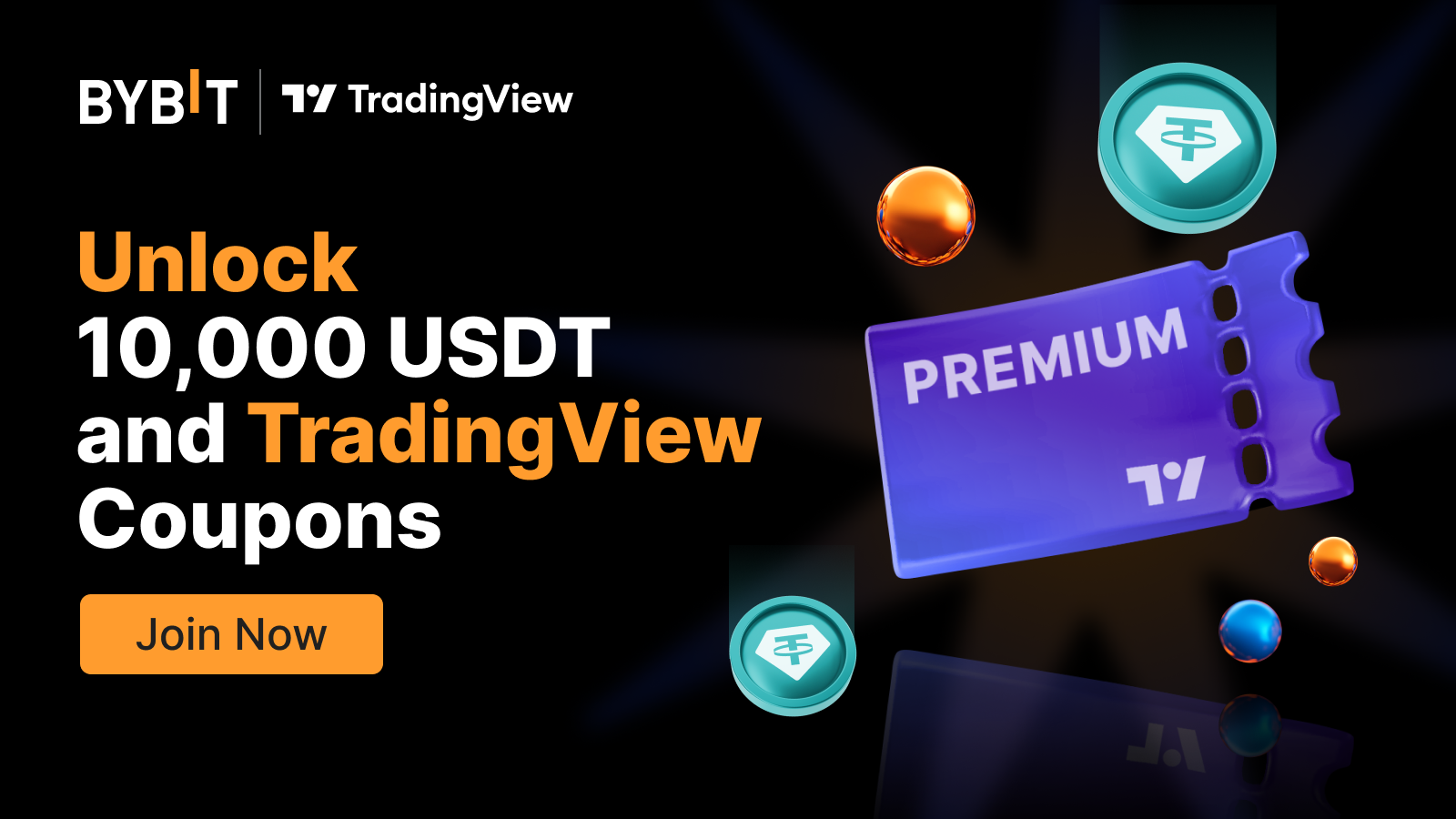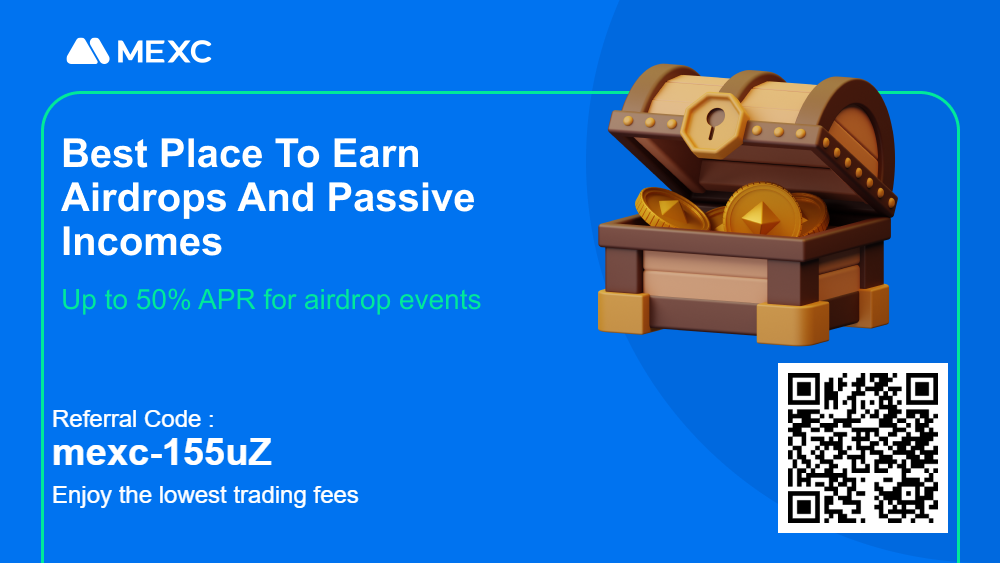Are you wondering how to become a blockchain developer? As the digital world continues to evolve, blockchain technology has emerged as a game-changer. With its decentralized nature and robust security features, it’s no surprise that the demand for blockchain developers is skyrocketing. This article aims to guide you through the journey of becoming a blockchain developer, providing you with the necessary steps, skills, and resources.
Table of Contents
What is Blockchain Development?
Blockchain development is the process of creating and implementing distributed ledger systems, often used in cryptocurrency transactions. But how does blockchain work? It’s a chain of blocks, where each block contains data that is cryptographically linked to the previous one, ensuring data integrity and security. The applications of blockchain technology extend beyond cryptocurrencies, impacting industries like finance, healthcare, and supply chain management.
Why Become a Blockchain Developer?
The world is witnessing a digital revolution, and blockchain technology is at the forefront of this transformation. But why should you consider becoming a blockchain developer? Let’s delve into the reasons.
High Demand and Job Prospects
Blockchain technology is not just about cryptocurrencies. It’s a revolutionary technology that has found applications in various sectors, including finance, healthcare, supply chain, and more. As more industries recognize the potential of blockchain, the demand for skilled blockchain developers is skyrocketing. This high demand translates into excellent job prospects, making blockchain development a promising career path.
Competitive Salary

One of the most compelling reasons to become a blockchain developer is the potential for a high salary. According to Glassdoor, as of 2023, the average salary for a blockchain developer in the United States is around $110,000 per year, with top earners making over $150,000. This high earning potential is a reflection of the value that blockchain developers bring to organizations.
Influence the Future of Technology
As a blockchain developer, you have the opportunity to shape the future of technology. Blockchain is still a relatively new field, and there’s a lot of room for innovation. Whether it’s developing a new cryptocurrency, creating a decentralized app, or improving blockchain security, the work you do can have a significant impact.
Intellectual Challenge
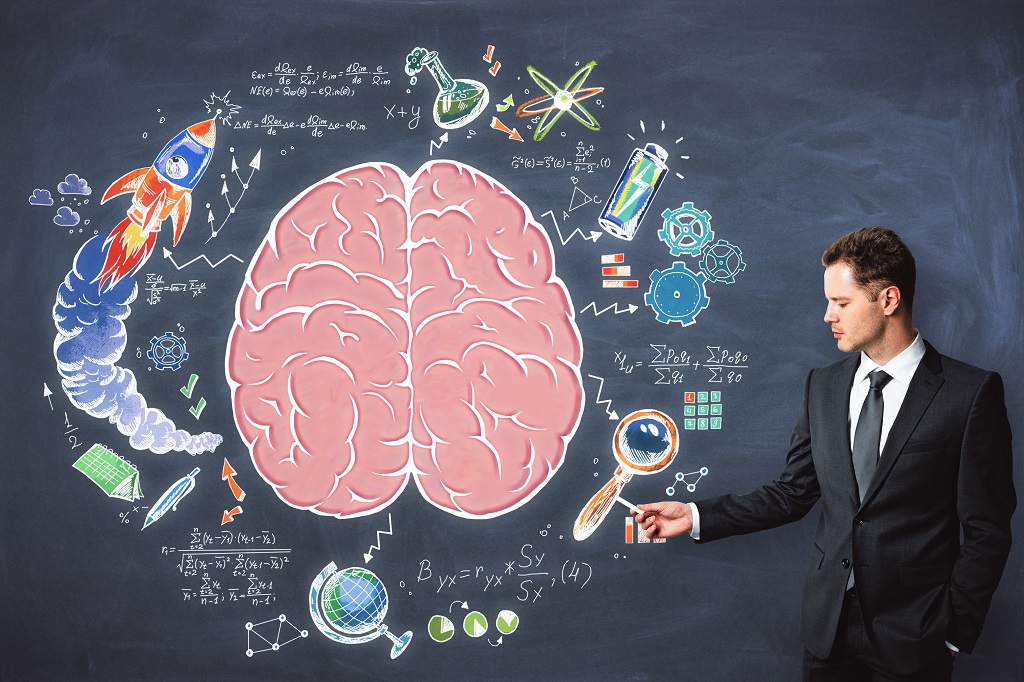
If you enjoy problem-solving and are fascinated by the intricacies of technology, then blockchain development could be a perfect fit. It’s a field that requires a deep understanding of complex concepts like cryptography, decentralization, and smart contracts. The intellectual challenge of mastering these concepts and applying them to real-world problems can be incredibly rewarding.
Skills Needed to Become a Blockchain Developer
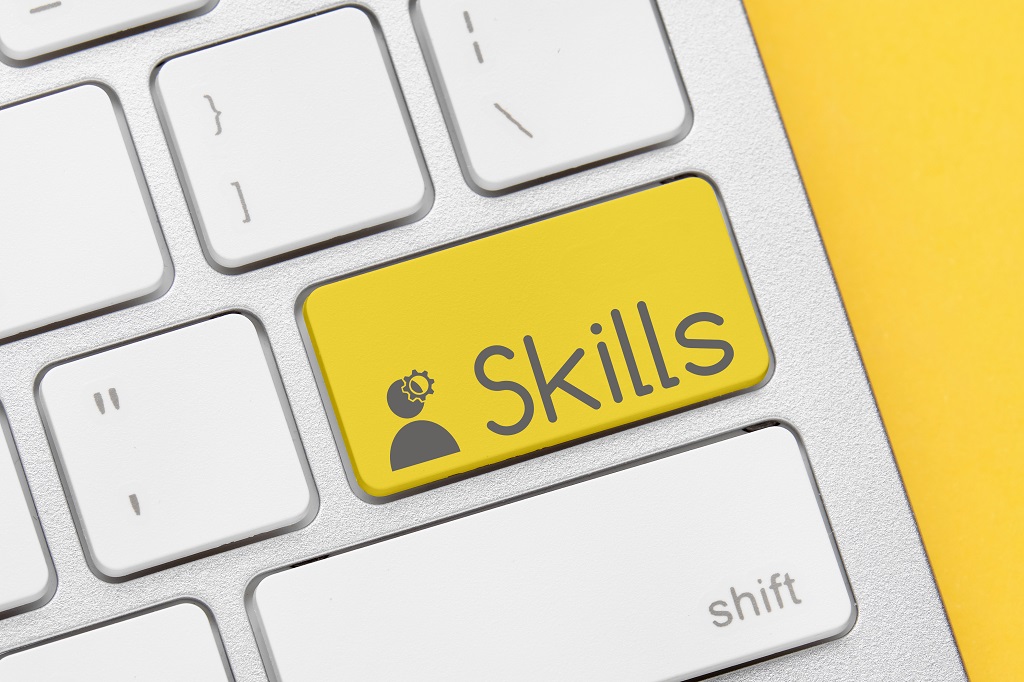
Becoming a blockchain developer requires a unique blend of technical and soft skills. Let’s explore these in detail.
Technical Skills
1. Programming Languages: Blockchain developers need to be proficient in several programming languages. Some of the most commonly used languages in blockchain development include:
- JavaScript: Used for creating interactive elements on websites.
- Python: Known for its simplicity and versatility.
- Solidity: A language specifically designed for creating smart contracts on the Ethereum platform.
- Rust: A system programming language focused on safety, speed, and concurrency. It’s increasingly being used in blockchain development for its performance efficiency and memory safety.
- C++: Known for its efficiency and control over system resources, often used in the development of high-performance blockchain systems.
- C#: A popular language for developing Windows desktop applications, it’s also used in blockchain development.
- Simplicity: A high-assurance, low-level programming language designed for smart contracts and blockchain protocols.
2. Understanding of Blockchain Protocols: A deep understanding of blockchain protocols and principles is crucial. This includes knowledge of concepts like decentralization, consensus mechanisms, cryptographic hash functions, and smart contracts.
3. Cryptography: Blockchain technology relies heavily on cryptography for securing data. Therefore, a good understanding of cryptographic principles and techniques is essential.
Soft Skills
1. Problem-Solving: Blockchain development often involves tackling complex problems and finding innovative solutions. Strong problem-solving skills are a must.
2. Analytical Thinking: Blockchain developers need to be able to analyze code, identify issues, and implement effective solutions.
3. Continuous Learning: The field of blockchain technology is rapidly evolving. As such, a commitment to continuous learning and staying updated with the latest trends and technologies is crucial.
Here’s a chart summarizing the key skills:
| Skill Type | Skills | Description |
|---|---|---|
| Technical Skills | Programming Languages (JavaScript, Python, Solidity, Rust, C++, C#, Simplicity) | Used for writing blockchain protocols and smart contracts |
| Understanding of Blockchain Protocols | Knowledge of blockchain principles like decentralization, consensus mechanisms, etc. | |
| Cryptography | Understanding of cryptographic principles for securing data | |
| Soft Skills | Problem-Solving | Ability to tackle complex problems and find innovative solutions |
| Analytical Thinking | Ability to analyze code, identify issues, and implement solutions | |
| Continuous Learning | Commitment to staying updated with the latest trends and technologies in blockchain |
In conclusion, mastering these skills is crucial for anyone aspiring to become a successful blockchain developer. It’s a challenging journey, but with dedication and continuous learning, it’s certainly achievable.
Steps to Become a Blockchain Developer
Becoming a blockchain developer is a journey that involves several key steps. Here’s a detailed look at each of these steps:
Step 1: Basic Prerequisites
Before diving into blockchain development, it’s important to have a solid foundation in computer science and a good understanding of data structures and algorithms. This knowledge will be crucial as you start to learn more complex blockchain concepts.
Step 2: Learning Programming Languages
Next, you’ll need to become proficient in several programming languages. These include JavaScript and Python, which are widely used in many areas of software development, as well as Solidity, Rust, C++, C#, and Simplicity, which are particularly relevant to blockchain development.
Step 3: Understanding Blockchain Principles
Once you’re comfortable with programming, it’s time to dive into the principles of blockchain technology. This includes understanding the concept of decentralization, how consensus mechanisms work, what smart contracts are, and how DApps (decentralized applications) are built and function.
Step 4: Hands-on Practice
Learning about blockchain development is one thing, but applying that knowledge is another. Look for opportunities to get hands-on experience. This could involve building a simple blockchain from scratch, contributing to open-source blockchain projects, or developing your own smart contracts or DApps.
Step 5: Advanced Learning
As you gain more experience, you can start to delve into more advanced topics. This might involve mastering blockchain platforms like Ethereum and Hyperledger, learning about different types of blockchain (public, private, consortium), or exploring cutting-edge topics like Layer 2 solutions or cross-chain interoperability.
Step 6: Getting Certified
While not always necessary, getting a blockchain certification can be a great way to validate your skills and knowledge. There are several reputable organizations that offer blockchain certification programs, which typically involve some form of coursework followed by an exam.
Step 7: Gaining Experience
Finally, the best way to become a proficient blockchain developer is to gain real-world experience. This could involve working on projects in a professional setting, doing an internship, or even freelancing. The more experience you gain, the more comfortable you’ll become with blockchain development.
Resources for Aspiring Blockchain Developers
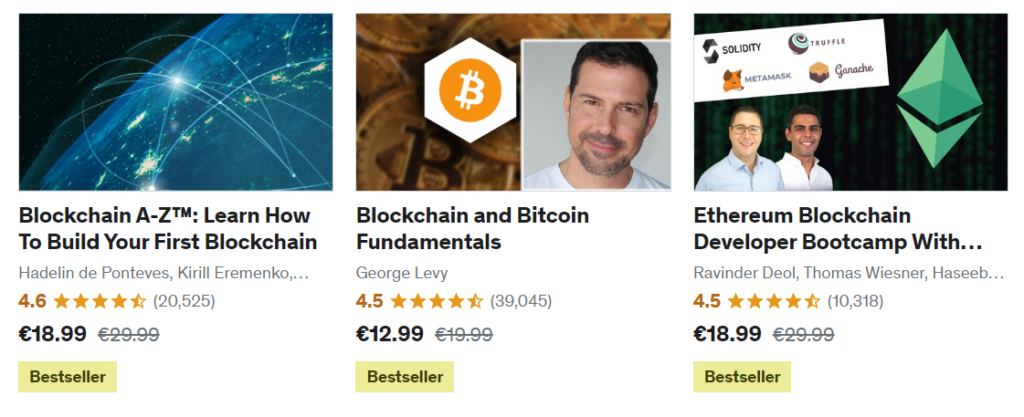
There are numerous resources available to help you on your journey to becoming a blockchain developer. Here are some of the most useful ones:
Online Courses and Tutorials
Online courses are a great way to learn at your own pace. Websites like Coursera, Udemy, and edX offer a variety of courses on blockchain development, from beginner to advanced levels.
Books and eBooks
Books can provide in-depth knowledge on specific topics. Some recommended books for blockchain developers include “Mastering Blockchain” by Imran Bashir and “Blockchain Basics: A Non-Technical Introduction in 25 Steps” by Daniel Drescher. These books are available on platforms like Amazon.
Blogs, Forums, and Communities
Blogs and forums can provide up-to-date information and allow you to interact with other blockchain developers. Websites like Medium, Stack Overflow, and Reddit have active blockchain communities.
Conferences and Meetups
Attending conferences and meetups can provide networking opportunities and insights into the latest trends in blockchain development. Websites like Meetup list blockchain events happening around the world.
Career Paths for Blockchain Developers
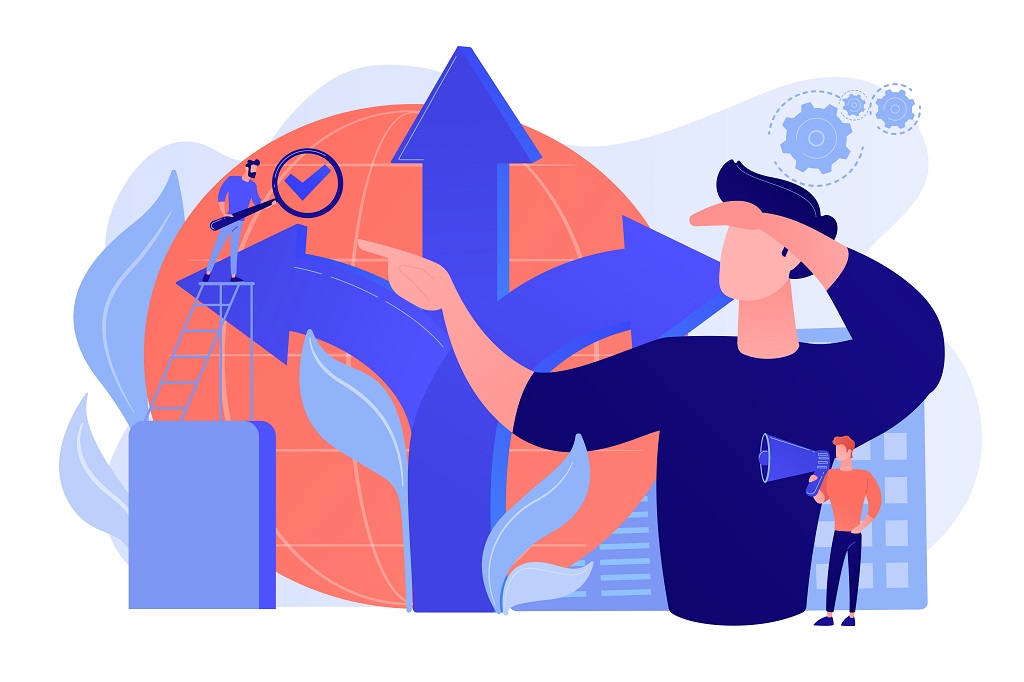
Once you’ve acquired the necessary skills and knowledge, a variety of career paths open up. Here’s a look at some of the potential career paths for blockchain developers:
Blockchain Developer in the Finance Industry
The finance industry was one of the first to adopt blockchain technology, with many banks and financial institutions using it for secure transactions and record-keeping. As a blockchain developer in the finance industry, you could work on developing and maintaining these systems.
Blockchain Developer in the Tech Industry
Many tech companies are exploring the use of blockchain for various applications, from secure data storage to supply chain management. Working as a blockchain developer in the tech industry, you could be at the forefront of these innovative applications.
Blockchain Developer in the Mining Industry
The mining industry is a crucial part of the blockchain ecosystem, responsible for validating transactions and adding them to the blockchain. As a blockchain developer in the mining industry, you could work on developing mining software or managing mining pools. This could involve optimizing mining algorithms, improving the efficiency of mining operations, or developing software to manage and distribute mining rewards.
Freelance Blockchain Developer
If you prefer more flexibility, working as a freelance blockchain developer could be a good fit. As a freelancer, you could work on a variety of projects for different clients, giving you the opportunity to constantly learn and challenge yourself.
Blockchain Consultant
If you have a deep understanding of blockchain technology and its potential applications, you could work as a blockchain consultant. In this role, you would advise businesses on how they can use blockchain to improve their operations and achieve their goals.
Conclusion
Embarking on the journey to become a blockchain developer is an exciting and rewarding endeavor. The field of blockchain technology is rapidly evolving, offering a wealth of opportunities across various industries, from finance and tech to mining and beyond.
Mastering the necessary skills, from programming languages like JavaScript, Python, Solidity, Rust, C++, C#, and Simplicity, to understanding blockchain protocols and cryptography, is a challenging but achievable goal. With resources like online courses, books, blogs, and communities readily available, the path to becoming a blockchain developer is more accessible than ever.
The career paths for blockchain developers are diverse and promising. Whether you choose to work in the finance industry, tech industry, mining industry, as a freelancer, or as a consultant, each path offers unique opportunities to apply your skills and make a significant impact.
In conclusion, the journey to becoming a blockchain developer is a commitment to continuous learning and hands-on practice. But with dedication, perseverance, and the right resources, you can master the skills needed to succeed in this exciting field. The demand for blockchain developers is growing, and with the right skills and dedication, you can be at the forefront of this technological revolution. So, are you ready to embark on this journey?
FAQs
What is a blockchain developer?
A blockchain developer is a professional who builds and implements blockchain protocols and applications. They play a crucial role in developing decentralized applications and systems.
Why should I become a blockchain developer?
Becoming a blockchain developer opens up a world of opportunities. With the increasing adoption of blockchain technology across various industries, the demand for skilled blockchain developers is on the rise. Plus, it offers competitive salaries and intellectual challenges.
What skills do I need to become a blockchain developer?
You’ll need a mix of technical and soft skills. This includes proficiency in programming languages like JavaScript, Python, and Solidity, a deep understanding of blockchain protocols and cryptography, and soft skills like problem-solving and analytical thinking.
How long does it take to become a blockchain developer?
The time it takes to become a blockchain developer can vary greatly depending on your starting point. If you already have a strong background in computer science and programming, you might be able to learn the necessary blockchain skills in a few months. However, if you’re starting from scratch, it could take a year or more of dedicated study and practice.
How hard is it to become a blockchain developer?
Becoming a blockchain developer is challenging, but not impossible. It requires a strong understanding of computer science principles, proficiency in specific programming languages, and a deep knowledge of blockchain technology. However, with dedication, continuous learning, and hands-on practice, you can overcome these challenges.
How to become a blockchain developer with no experience?
Even with no experience, you can become a blockchain developer by following these steps: Start by learning the basics of computer science and programming. Then, dive into blockchain-specific topics like decentralization, smart contracts, and DApps. Online courses, books, and tutorials can be great resources. Finally, get hands-on experience by building your own simple blockchain or contributing to open-source projects.
How much will it cost to become a blockchain developer?
The cost to become a blockchain developer can vary. Many resources, like online tutorials and forums, are free. However, if you choose to enroll in formal courses or certification programs, the costs can range from a few hundred to several thousand dollars. Remember, investing in your education can pay off in the long run with a rewarding career in blockchain development.

